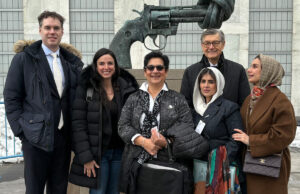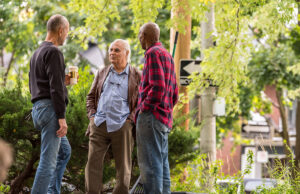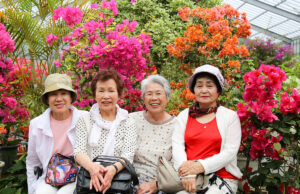Ageism During a Pandemic
The Coronavirus shines a bright light on what those of us committed to the well-being of our world’s elders have known for a long time: We have long undervalued, underfunded, and largely ignored the plight of older adults. As the virus rages through communities and countries, older adults are disproportionately impacted. We knew, at the outset, that older adults, those with underlying health conditions, and members of specific ethnic and racial groups were most at risk. We had a chance to target resources to prevent unnecessary deaths. We are losing our elders not just because they are most susceptible to this vicious virus but because we have failed to protect them.
Ageism is at the root of this. As nations, we invest in what we value most. The impact of this virus is a stark reminder that we have—as societies—failed our older adults. We have failed those who have built our communities, fought in our wars, contributed to our economies, and brought creative talent, scientific mastery, grit, and compassion to our daily lives. Older adults are integral to the strength and humanity of our societies. And yet, we have failed them.
Ageism is evident in the lack of prioritization of PPE, testing and support. It is evident in prioritizing hospitals over aged care homes. It is evident in how quick we are to blame dedicated care providers for some failing on their part. In truth, the pandemic is the enemy. We are dealing with an uncharted pandemic. It takes no prisoners. It is invisible. The response needs to target those most at risk, focus on the hot spots, and take advice from the scientists and public health experts around testing and physical distancing. Not just for some people, but for ALL people, regardless of age.
The Global Ageing Network is witnessing the impact of the pandemic through the eyes of providers and others in more than 60 countries. We are seeing deep commitment, fortitude, and compassion that is nothing short of inspiring. Our elders deserve this. And, we are seeing institutional and attitudinal barriers that stand in the way of progress.
This is a time for the global community committed to the well-being of older adults to come together. To raise our voices and call for an end to ageist policies and practices. It is a time to repair the economic, political and social fault lines in our societies. It is a time to reimagine how services and supports for older adults fit into our broader health systems – not as stepchildren, but as equal partners playing an essential role. It is a time to rebuild communities that have become fractured by social and physical distancing.
But most immediately, it is a time to express our deep sympathy for the thousands of lives lost. Every community has lost a part of its soul. And, to express our gratitude to the dedicated direct care workers, the nurses, the social workers, and so many others who have put their lives at risk to show up every day to support those in their care. We are grateful.
By Katie Smith Sloan

Recently Added
February 19, 2026
Statement to the United Nations: February 2026
January 22, 2026




